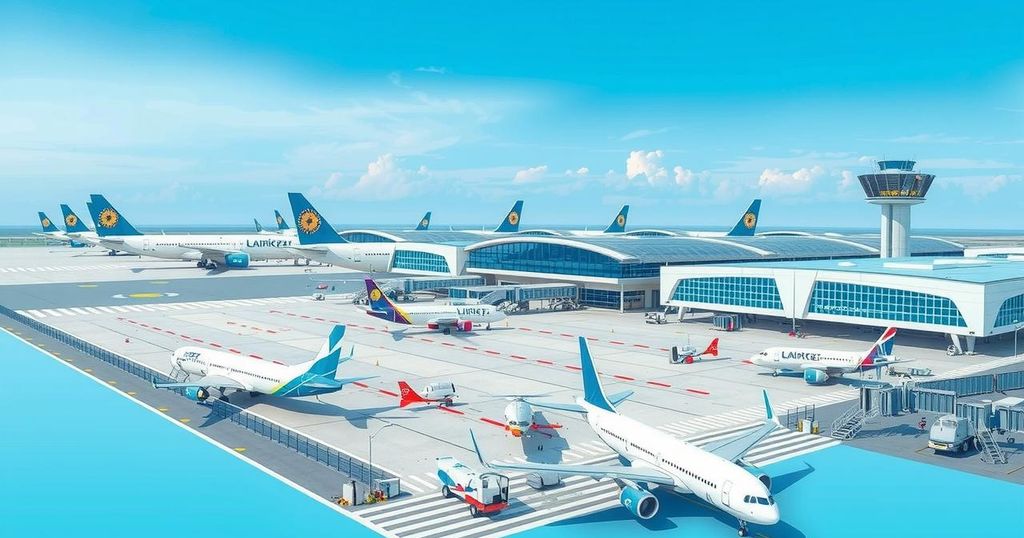Challenges and Developments: Aleppo Airport Reopens Amid Israeli Political Strain
Aleppo International Airport has reopened for flights, signaling a recovery in Syria. Concurrently, Israel’s Prime Minister Netanyahu confronts coalition challenges from United Torah Judaism regarding military exemptions for ultra-Orthodox Jews. The political tensions necessitate careful negotiation to maintain government stability and reflect on broader societal sentiments about military service.
The reopening of Aleppo International Airport marks a significant development in Syria, enabling both domestic and international flights to resume. This event highlights a pivotal shift in the country’s ongoing recovery efforts. The resumption of air travel is expected to foster economic engagement and facilitate the return of displaced persons, further solidifying Aleppo’s status as a vital hub in Syria.
The government now faces pressing challenges regarding its budget, which must be passed within a short timeframe to avoid calling snap elections. United Torah Judaism, holding seven seats in the Knesset, is exerting pressure on Prime Minister Benjamin Netanyahu by demanding exemptions for ultra-Orthodox Jews from mandatory military service. Failure to meet this demand could result in the party’s withdrawal from the coalition.
Prime Minister Netanyahu, known for his coalition management skills, must now navigate these tensions carefully. Despite conflicting opinions among parties, many speculate that Netanyahu may need to seek support outside his current coalition to ensure the budget’s passage. Pollster Mitchell Barak notes the potential unwillingness of ultra-Orthodox politicians to negotiate compromise in this context.
Mandatory military service, instituted after Israel’s inception in 1948, traditionally exempted ultra-Orthodox communities dedicated to religious studies. The significant increase in the Haredi population, now at 1.4 million, has contributed to growing discontent among conscripted Israelis. The Supreme Court’s ruling against the exemption creates further urgency to formalize any new legislation to ensure compliance.
Members within the Haredi community express strong resistance to military conscription, highlighting political motives rather than any pressing military necessity, according to individuals like Yehoshua Menuchin. The consequences of prolonged tensions further complicate public sentiment, especially as military casualties are increasingly felt throughout Israeli society.
The Haredim emphasize their cultural preservation against integration with secular society, which they see as a threat to their way of life. The military is adapting its structure to accommodate Haredi values and practices in an effort to encourage enlistment, as voiced by Eyal Zamir, Israel’s chief of military staff. Clear delineation of these efforts may guide future cooperation between the military and Haredi communities, emphasizing shared national defense responsibilities.
In summary, the reopening of Aleppo International Airport signifies a critical step towards Syria’s recovery, while the Israeli government grapples with coalition pressures over military conscription exemptions for ultra-Orthodox Jews. Prime Minister Netanyahu faces significant challenges in maintaining government stability amid demands from United Torah Judaism. With public sentiment growing against exemptions, and discussions surrounding the integration of Haredi communities into military service intensifying, the political landscape continues to evolve. Effective negotiation and coalition management will be essential for Netanyahu as he seeks to address these pressing matters.
Original Source: www.arabnews.com




Post Comment